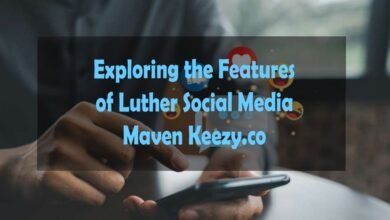From Excel Sheets to Algorithms: Transitioning to Data Science

The world is swimming in data. Every click, swipe, and purchase you make generates a digital footprint. Companies are sitting on mountains of information, but what good is data if you can’t extract insights from it? That’s where data science comes in.
Data science is a rapidly growing field that combines statistics, programming, and domain knowledge to uncover hidden patterns and meanings from data. It’s a blend of technical and analytical skills that allows you to transform raw data into actionable insights that can improve decision-making, optimize processes, and even predict future trends.
If you’re a whiz with Excel spreadsheets and have a curious mind that enjoys asking questions about data, then data science might be the perfect career path for you. This blog is designed to be a roadmap for those looking to transition from working with spreadsheets to building sophisticated algorithms.
We’ll delve into the core concepts of data science, explore the tools and programming languages you’ll need to master, and provide practical tips and resources to help you navigate this exciting field.
Core Concepts of Data Science
Transitioning from spreadsheets to data science requires understanding some new terminology. Don’t worry, these concepts are more intuitive than they sound!
- Data Wrangling: Imagine an overflowing toolbox, that’s raw data. Data wrangling involves cleaning, organizing, and structuring this data to make it usable for analysis. Think of it as tidying your toolbox before you start building something.
- Exploratory Data Analysis (EDA): This is where you get to know your data. EDA involves visualizing the data through charts, graphs, and other techniques to identify patterns, trends, and potential outliers. It’s like sifting through your toolbox to see what tools you have and their condition.
- Machine Learning (ML): Here’s where things get exciting. ML algorithms can learn from data without explicit programming. Imagine showing your toolbox to an AI helper who starts suggesting things you can build based on the tools available.
- Statistics: Statistics is the foundation of data science, and statistics provides the tools to analyze and interpret data. It helps you measure trends, assess relationships between variables, and draw statistically sound conclusions. Statistics are the assembly instructions that guide you in using the tools in your toolbox to build something functional.
Essential Programming Languages
Spreadsheets rely on formulas, but data science demands more robust programming languages. Here are two key languages to conquer:
- Python: Widely used and beginner-friendly, Python offers a vast library of data science tools like NumPy for numerical computing and Pandas for data manipulation. Think of Python as a well-organized workshop with plenty of specialized tools at your disposal.
- R: Another popular choice, R excels at statistical analysis and data visualization. If Python is the workshop, R is the specialized drafting room where you create blueprints from your toolbox inventory.
While these are the most common starting points, data science can also leverage languages like Java, Scala, and C++, depending on the specific domain and application.
Building Your Skillset
The data science journey can be self-directed or structured through formal courses. Here are some options to consider:
- Online Courses: Platforms like Coursera, edX, and Udacity offer a plethora of data science course, from beginner to advanced levels. These are like video tutorials demonstrating how to use the fancy tools in your workshop.
- Data Science Bootcamps: These intensive programs provide a crash course in data science fundamentals, often lasting weeks or months. Think of them as bootcamps equipping you with the core skills to confidently navigate the workshop.
- Data Science Master’s Degree: Universities are increasingly offering Master’s programs in data science, providing a rigorous academic foundation and potential career connections. This is a full-fledged degree program, turning you into a data science master craftsman.
A data science course in Chennai offers a comprehensive curriculum that covers everything from basic statistics and programming to advanced machine learning techniques. The courses are designed and taught by industry experts, providing hands-on experience with real-world data sets and projects. So, I highly recommend considering a course here in Chennai if you’re serious about transitioning to this field.
Projects and Portfolios
Data science is a practical field. The best way to solidify your learning is by tackling real-world projects. Here are some ways to get hands-on experience:
- Kaggle: This online platform hosts data science competitions where you can test your skills against others and learn from their approaches. Think of Kaggle as a data science competition arena where you can hone your skills against fellow builders.
- Personal Projects: Find a dataset that interests you and analyze it using your newfound skills. This could be anything from analyzing sports statistics to exploring weather patterns. Personal projects are like building your own creations in the workshop, allowing you to experiment and showcase your abilities.
- Freelance Work: Look for freelance data science gigs on platforms like Upwork or Fiverr. This can provide valuable experience while building your portfolio. Freelance work allows you to take on real-world projects for clients, further solidifying your expertise.
Connecting with the Data Science Community
Data science is a collaborative field. Here are some ways to connect with the community and learn from others:
- Meetups and Conferences: Attend local meetups and data science conferences in Chennai. These events are excellent opportunities to network with professionals, learn about industry trends, and hear from experienced speakers. Meetups and conferences are like attending industry gatherings where you can exchange ideas and learn from experienced builders.
- Online Forums: Participate in online forums and communities like Reddit’s r/datascience or Kaggle Discussions. These platforms allow you to ask questions, share your work, and get feedback from others. Online forums are virtual workshops where you can connect with fellow builders, share ideas, and troubleshoot challenges.
Conclusion – The Bottom Line
Venturing into the realm of data science can be an exhilarating and rewarding experience. With the foundation of essential programming languages, understanding core concepts, and engaging with the community, you’re well on your way to mastering this dynamic field.
Whether you opt for self-directed learning through online courses, immersive boot camps, or pursuing a formal data science master’s degree, the opportunities to grow and excel are boundless. For those in the vicinity, choosing a Data Science Course in Chennai could provide tailored learning experiences and local industry connections.
Remember, the key to success in data science lies not just in acquiring theoretical knowledge but in applying it through projects and real-world challenges. Keep exploring, keep learning, and consider enrolling in a reputable Data Science Course to jumpstart or advance your career in this exciting domain.
BUSINESS DETAILS:
NAME: ExcelR- Data Science, Data Analyst, Business Analyst Course Training Chennai
ADDRESS: 857, Poonamallee High Rd, Kilpauk, Chennai, Tamil Nadu 600010
Phone: 8591364838
Email- enquiry@excelr.com
WORKING HOURS: MON-SAT [10AM-7PM]




